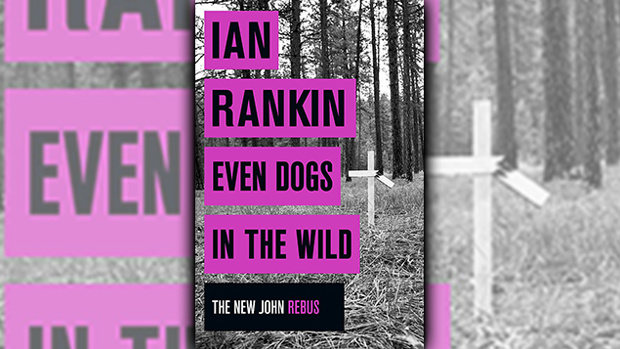Stephanie Jones: Book Review - Even Dogs in the Wild by Ian Rankin
- Publish Date
- Saturday, 31 October 2015, 12:09AM

- Author
- By Stephanie Jones
The song ‘Even Dogs in the Wild’ marks a poignant moment near the conclusion of Ian Rankin’s novel of the same name, as Rebus, now in a glorified consulting role to the police of Edinburgh, once again gets his man. The crux of the story is topical, as Rankin alludes to real-life alleged historical abuses of children in state care by high-ranking public servants and titans of industry to weave a story that brings Rebus back (‘Retirement doesn’t suit John Rebus’, the back cover shouts) into the orbit of Detective Inspectors Siobhan Clarke and Malcolm Fox.
Fox and Clarke, who have developed a personal if atypical dependency on one another, summon Rebus when neighbours of ‘Big’ Gerry Cafferty, a local gangster of note, report that a bullet has been fired through his window. Cafferty would really rather not discuss the event, which seemingly dovetails with the murder, in tony New Town, of one Lord Minton, a former chief legal adviser to the government.
Clarke initially suspects a housebreaking gone wrong, but the attack on Cafferty, along with the recent arrival in Edinburgh of a family of organized criminals from Glasgow, suggests that certain residents of the city might have reason to look over their shoulders. The Starks are looking for a local haulage contractor who has “done a flit” with the drugs and cash he was moving for the gang, and in the police’s supposition it is likely they or another local thug, Darryl Christie, have some explaining to do.
Cafferty’s generally uncooperativeness is no match for Rebus’ slow-jam intel gathering and capacity to make serious investigative progress while ankle-deep in a bottle of Scotland’s finest, and the story, literally and emotionally, is constructed around the dynamic of the two men: “Rebus had seen much in his old foe’s eyes down the years – guile, venom, darkness. But now he saw something else: uncertainty, triggered by fear.”
There is plenty of fight, and native cunning, left in both men, and the established rules remain: while they could, at moments, be taken for old high-school buddies, Rebus never lets Cafferty forget who holds the power – even though Rebus no longer has so much as a badge to place on the pub table between them.
The chess game of criminality is subject to careful examination by Rankin, whose Edinburgh doesn’t have room for a new wave of larceny, no matter how unified. There ensues back-room dealing, to which neither Rebus nor Fox are privy, in which Cafferty and Christie debate how they might team up to oust the Starks and bring renewed order to the city’s underbelly.
However, the running of drugs pales in comparison to the gross disorder that is uncovered as the investigation progresses and the DIs are led in the direction of Acorn House, an assessment centre which proved a ready source of children for the entertainment of various lawyers, MPs and other public figures in the 1980s.
Even Dogs in the Wild, Rankin’s 20th Rebus and fifth Fox novel, finds the author in sterling form and his most famous creation dauntless and stalwart: the climactic scene, which Rebus enters knowing he has only his verbal skill by way of weapon, showcases the still-remarkable sharpness of the Rebus psychology and intellect. The novel ends on an appropriately mournful, yet resounding, note. If Rebus were to consider the matter, he might conclude that even dogs in the wild are superior creatures to civilized man.
%MCEPASTEBIN%
Take your Radio, Podcasts and Music with you

